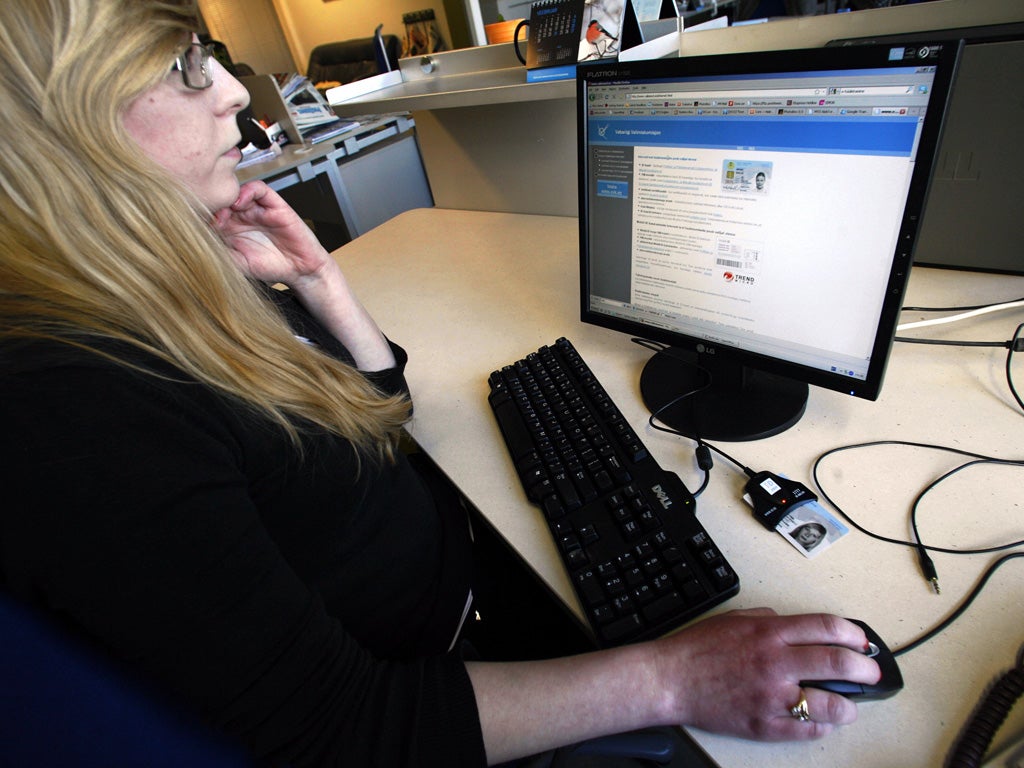Gender pay gap increases with age, report finds
‘Women in their fifties and sixties face the double discrimination of age bias, combined with the widest gender pay gap of all ages,’ says campaigner

Your support helps us to tell the story
From reproductive rights to climate change to Big Tech, The Independent is on the ground when the story is developing. Whether it's investigating the financials of Elon Musk's pro-Trump PAC or producing our latest documentary, 'The A Word', which shines a light on the American women fighting for reproductive rights, we know how important it is to parse out the facts from the messaging.
At such a critical moment in US history, we need reporters on the ground. Your donation allows us to keep sending journalists to speak to both sides of the story.
The Independent is trusted by Americans across the entire political spectrum. And unlike many other quality news outlets, we choose not to lock Americans out of our reporting and analysis with paywalls. We believe quality journalism should be available to everyone, paid for by those who can afford it.
Your support makes all the difference.The gender pay gap increases as people get older and is largest for the over-50s, a study has found.
Rest Less, a website that supports the over-50s, found that the median annual salary of women working full-time in their fifties was 23 per cent less than for men of the same age.
Researchers who analysed official figures found that women in their sixties were paid 24 per cent less than their male counterparts: a median annual salary of £26,230 for women and £34,325 for men.
The median annual salary of a woman in a full-time job this year was just under £28,000, compared with £33,923 for men.
Stuart Lewis, founder of Rest Less, said: “Women in their fifties and sixties face the double discrimination of age bias, combined with the widest gender pay gap of all ages, receiving a salary of £8,000 less per year than their male counterparts in full-time employment.
“Whilst the state pension age has now been equalised at 66 for both sexes, decades of a gender pay gap and the resulting wide gulf in private pension savings mean that the future retirement incomes of men and women remain far from equal.
“The fact that earnings peak in our forties and decline as we head into our fifties and sixties has profound implications for all of us and our retirement savings plans.”
He said people are no longer able to depend on heftier salaries in the years before they retire to fund pensions, and instead must contemplate how to save for retirement when they are younger.
The report notes that women’s median full-time salaries fell by an average of 9 per cent between their peak salaries in their forties and their fifties.
Almost 4 million women were impacted by the controversial state pension overhaul, which saw the pension age increased from 60 to 66 for women born after March 1950 – with the United Nations warning that the changes place them at increased risk of “poverty, homelessness and financial hardship”.
The Labour Party recently warned that another 8.5 million women will spend the entirety of their careers without receiving equal pay unless the government introduces immediate measures to tackle the gender pay gap.
The study, released following Equal Pay Day on 20 November, the date that represents when women stop earning for the rest of the year compared with men, said progress on closing the gender pay gap had substantially dropped off under the Conservatives and the gulf will not be closed until 2052 at the present rate of progress.
The Labour MP Stella Creasy recently told The Independent that the government has “taken their foot off the pedal” on tackling the gender pay gap despite the disparity increasing, adding that there is a lack of “political will” within government to address the issue.
Rules obliging private companies who employ more than 250 people to release their gender pay gap figures were suspended by the government earlier in the year because of the coronavirus crisis.
A recent study by The Equality Trust found that UK high street chains were giving male employees heftier bonuses than their female workers, with researchers discovering an increase of 179 per cent in the average gender bonus gap among companies that chose to reveal their figures.


Join our commenting forum
Join thought-provoking conversations, follow other Independent readers and see their replies
Comments